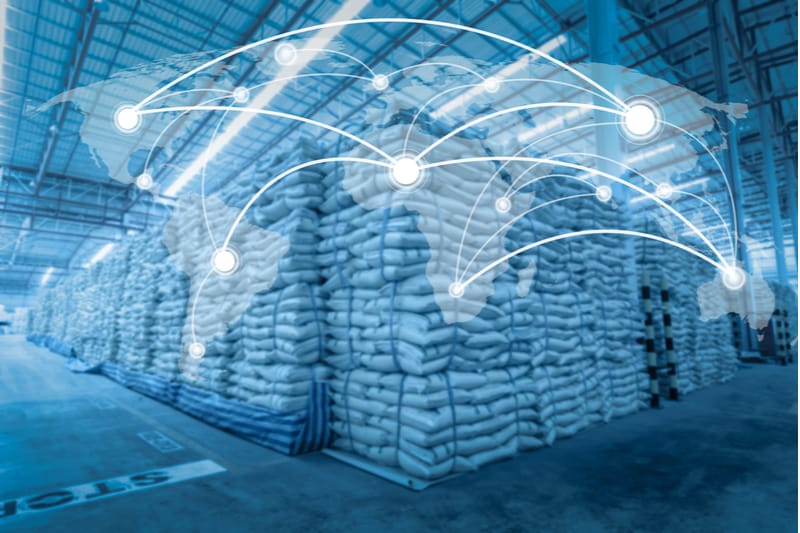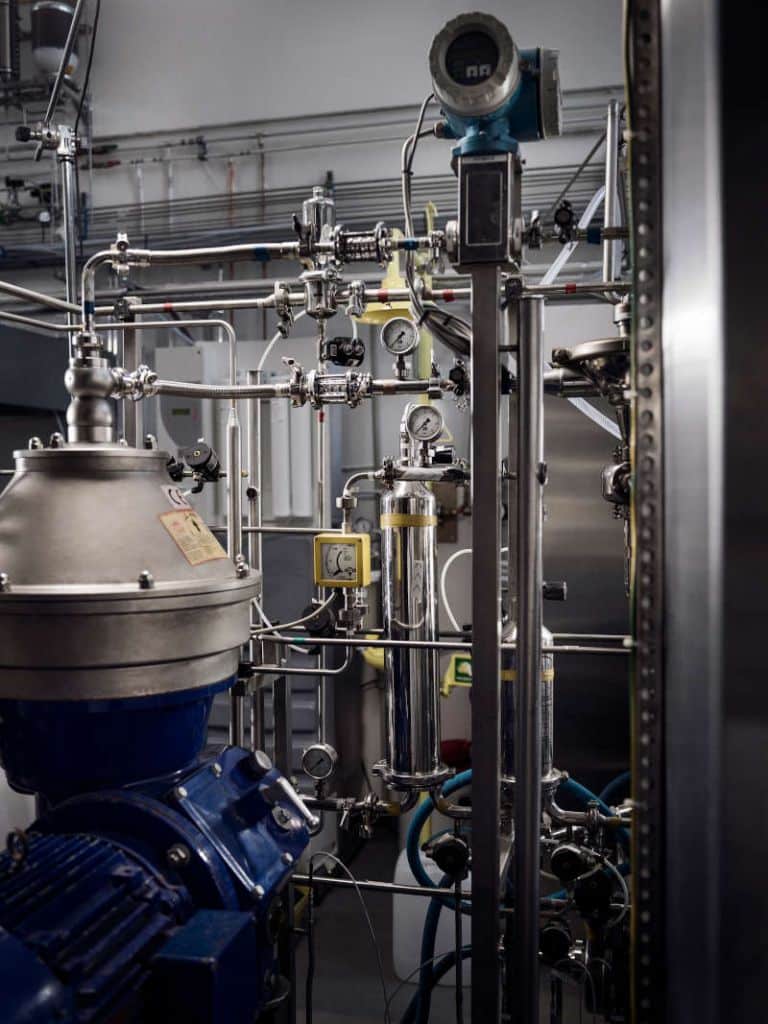Newsletter Signup - Under Article / In Page
"*" indicates required fields
Many nations are experiencing a food security crisis caused by geopolitical conflicts, extreme weather and supply chain disruption. A wave of precision fermentation companies is working to protect from future food price shocks by producing sustainable protein ingredients from microbes rather than traditional farms.
The world is facing a protracted food security crisis with the main drivers including economic turmoil from the COVID-19 pandemic, climate change and food price shocks resulting from the war in Ukraine. Some of the poorest populations globally are the most vulnerable to the fluctuations in prices of wheat and other crops.
The crisis demonstrates humanity’s dependence on plant crops and animal farming for its food production, and how easily global disruption can jeopardize our food supply. However, an emerging form of food production based on cellular agriculture — farming animal cells or microorganisms — could allow society to more easily weather food security crises.
Cultured meat is one type of cellular agriculture entering the public eye. It involves growing animal muscle cells in a factory, which could be more sustainable and less resource-intensive than traditional animal farms.
Another hot area in cellular agriculture is the production of food through precision fermentation. Unlike traditional microbial fermentation, where microorganisms convert foods into beer, yoghurt and other well known products, precision fermentation involves turning microorganisms into mini-factories producing specific enzymes or protein ingredients. The raw materials needed to fuel precision fermentation range from sugars from waste biomass to greenhouse gases in the air, which could allow us to transition to a circular, low-waste bioeconomy.
“Like everything precision fermentation has inputs and a supply, but the main inputs are electricity, which can be generated by renewables, and simple sugars, which have not shifted much in commodity pricing the past few months, and there is not really any supply chain disruptions in that area,” said Nick Cooney, Managing Partner at Lever VC, an investment firm focusing on companies in the alternative protein sector. “So relative to other ways of producing food, many of which have seen meaningful impacts and cost increases in recent months, precision fermentation is looking pretty good.”
Investments in fermentation players in the global alternative protein space tripled from almost $600 million in 2020 to over $1.7 billion in 2021. This follows a surge in consumer and investor interest in meat alternatives that arose during the COVID-19 pandemic.
Now there are many companies forging a path to the market with gas and precision fermentation. Some products have already hit the shelves in the U.S., including Impossible Burger, which contains ingredients made using genetically modified yeast, as well as ClearEgg and EggWhite — egg protein ingredients produced from microbes by the EVERY Company.
Other startups are working their way towards the market. For example, the Israeli firm ImaginDairy recently raised $28 million to fund the development of dairy proteins produced via precision fermentation. And other companies like Solar Foods, Air Protein and LanzaTech are racing to harness microbes to turn waste gases like carbon dioxide into food for human consumption.
“Using carbon dioxide, hydrogen and other gases to feed microbes to generate proteins is so much more efficient and sustainable than conventional protein production,” explained Albrecht Wolfmeyer, head of the food startup-focused ProVeg Incubator.
“It needs less space, energy and water. Instead of adding to deforestation and climate change — around 80 percent of the destruction of our rain forests is caused by animal agriculture — it has the potential to recycle climate-wrecking gases. It is also clearly more ethical than raising and slaughtering billions of animals on an industrial scale.”

However, huge challenges remain for players producing protein via fermentation. One of the biggest is scaling up their technology to a point where the price of their sustainable protein can compete with traditional sources.
“From the companies we’ve spoken to and diligence in this area it does seem like it will be a fight to get the cost per kilogram of protein produced down to the same level as commodity plant-based proteins,” said Cooney.
The firm Deep Branch is one of many taking on the scaling challenge. The U.K. company uses microbes to turn carbon dioxide into sustainable protein for use in animal feed. Its approach differs slightly from precision fermentation as the microbes themselves are also an ingredient in the final protein product.
According to Deep Branch’s co-founder and Chief Technology Officer, Rob Mansfield, one of the main problems to solve is how to increase the volumes they use while keeping the gas-to-liquid transfer efficient. The company uses computational models and pilot experiments to predict the most efficient designs.
“This approach offers a powerful tool to assess the impact of all key parameters which might adversely affect the process within large-scale systems, such as gradients in temperature, pressure or pH,” explained Mansfield. He added that the company’s pilot plant will come online in the coming weeks.
Another big limiting factor is that there’s a finite amount of tank space in the world of fermentation. The main precision fermentation capacity is in the hands of multinationals including DuPont and Cargill, and their space is typically reserved for lucrative products including lactic acid and pharmaceuticals.
“There are a number of solutions to this, and we believe we’ll be seeing more added capacity to the tank space, including new facilities that will be built,” said Eyal Afergan, co-founder and CEO of ImaginDairy. “It will take time to completely resolve this bottleneck but looking at the global trend and where human nutrition is headed, we believe that working now toward the solution is the best thing to do.”
Sean Simpson, CSO and founder of LanzaTech, is also confident that the industry will adapt to growing demand for stability in food supplies. The firm uses its own facilities to generate 50,000 tons of ethanol and 3,000 tons of protein annually from gas emissions in a plant in China. “Many will be encouraged to take manufacturing much more into their own hands and so no longer rely on whole manufacturers,” he remarked.
Another question mark hangs over the fuel required to generate the electricity used in many precision fermentation plants. While renewable energy could provide the power required to fuel these processes, these forms of energy production aren’t fully reliable at present. Last year, for example, the U.K. scrambled to fire up gas and coal power stations when wind power generation fell sharply.
Nonetheless, future trends may unlock the potential of renewable energy, said Pasi Vainikka, CEO of the Finnish company Solar Foods. Solar Foods is developing a way to convert carbon dioxide from the air into sustainable protein using just a vat of bacteria and electricity.
One notable trend that could change the game is the adoption of electric vehicles. They are creating demand for efficient battery storage whose benefits could ripple out to other industries, including precision fermentation. “The cars are not there yet, but if we think decades ahead, we are going through a transition,” said Vainikka.

While it could be feasible for protein made via gas fermentation to compete on price with animal proteins in the future, the jury’s still out whether it could go toe-to-toe with plant-based protein.
“At least with the current approaches, even if you leave aside the very large upfront [costs of setting up the facilities], the only way to get to price parity with key commodity plant proteins is if you’re able to get all of your energy from renewables and get some type of credits, subsidies or similar from using those renewables,” said Cooney. “There may well be a market for these sort of proteins, but personally I struggle to see how the benefits outweigh the [setup] and unit costs enough to represent a very big opportunity.”
However, precision and gas fermentation may not even need to reach price parity with current sources if the protein has a unique property or application. For example, the firm Protera uses precision fermentation to develop protein ingredients that can improve the shelf life of baked goods like bread.
“If we look at consumer behavior, people are today ready to pay more for better products (e.g. organic, locally produced), so there may not be an absolute need to get to price parity,” said Joško Bobanović, Partner, Industrial Biotech Strategy at the investment firm Sofinnova Partners. “In parallel, pressures on traditional animal protein producers to become more sustainable will continue to grow and additional costs will need to be incurred, consequently driving prices higher.”
In recent years, the media and general public have gained more awareness of how fragile the food supply chain can be. The recent food security crisis, combined with government initiatives such as the European Green Deal, is creating a perfect storm spurring the development of sustainable fermentation technology.
“It’s true that the raw materials used in precision fermentation could become more costly if the food security crisis gets more severe,” said Wolfmeyer. “Then again, the call for a more sustainable food system was never more urgent. Compared to conventional production and the current state, precision fermentation will turn out to be an inevitable part of the solution.”
July 14 2022: Sean Simpson’s job title corrected to CSO and founder of LanzaTech






